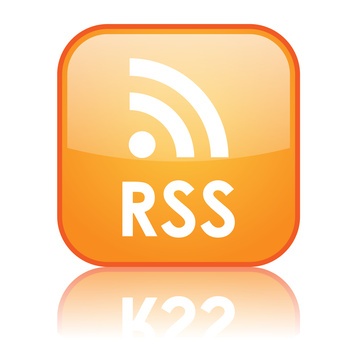
by Allie Parker
Health Impact News
With the rise of panic surrounding the COVID epidemic, the last thing any parent, particularly a new mother, wants to hear is that they are going to be reported to Child Protection Services (CPS). Sometimes parents are not even aware a complaint has been made until they receive a call from a social worker with CPS.
MedicalKidnap.com has covered countless stories of how CPS is used as a weapon against parents by ex-spouses or partners. See:
DC School Warns Parents They’ll Call CPS If You’re Late to Pick Up Your Children After School
The Weaponizing of CPS – Lose Your Children IF: You Don’t Vaccinate, You Don’t Make a Dentist Appointment, You Don’t Pay School Lunch Fees, You Don’t Shut Up, Etc.
We have also covered some of the endless horror stories about families who have been falsely accused of abuse when the true cause of the child’s injury is overlooked by the growing sub-specialty known as Child Abuse Pediatricians (CAP’s).
Exposing How Child Abuse Pediatricians Medically Kidnap Children: A Guide for Parents
Epidemic of Vitamin D Deficiency Contributes to False Child Abuse Charges by Child Abuse Doctors
Falsely Accused Washington Couple Loses Medically Kidnapped Baby for Two Years
But what happens when you aren’t accused of child abuse or neglect directly, but accused of having a substance abuse problem and using illegal or illicit drugs while pregnant, because you failed a urine drug screen? This is an issue that many people are unaware of, but happens more and more frequently due to, in part, the rise of opioid addiction and abuse.
When a family shows up to the hospital ready to give birth and meet their new bundle of joy, being placed on monitors, having blood drawn, an abundance of other testing is expected. But a drug test? Yes.
Legality and Ethics of Drug Testing Pregnant Women
Drug testing mothers about to give birth varies from state to state and facility to facility. Most facilities only drug test mothers who are considered “high risk” for drug abuse. For a mother to be considered high risk, facilities have a set of guidelines they follow to determine if the testing is necessary. Some states and facilities drug test all mothers to be.
But in order for them to do a drug test, consent is required, which is rarely, if ever, mentioned to mother. It is hidden somewhere among the fine print of the multiple papers given to you to sign, and usually included with the “authorization to treat” form.
Not only is this misleading and unethical, it could be against the law.
The AMA Journal of Ethics published an article informing readers about how the Supreme Court agreed petitioners in Ferguson v. City of Charleston:
“…challenged the constitutionality of the drug tests, claiming that performing the tests in the absence of a warrant or informed consent violated the patients’ Fourth Amendment protection against unreasonable search and seizure.”
The AMA Journal also points out:
“The Supreme Court recognizes that a physician’s duty is to provide sound medical treatment to his patient, not to act as an extension of law enforcement.
Physicians serve medical—not legal—roles in the treatment of pregnant women. Health care professionals who act on behalf of the state rather than for their patients breach the ethical duties of the patient-physician relationship.
Such a breach erodes confidence and trust in the medical community, resulting in poor disclosure by patients, which, in turn, may dramatically reduce the efficacy of diagnosis and treatment.”
Physicians’ Oath to Do No Harm Broken When They Fail to Practice Due Diligence
Many people may say, “Who cares if they drug test expecting mothers. Women who are pregnant should never be taking illegal or illicit drugs.”
But what if a mother is taking a legal medication, prescribed to her by her physician, that is known to cause a false-positive on a urine drug screen?
When a woman tests positive for drugs prior to giving birth, the hospital then collects the newborns first void, known as meconium, to also be tested for drugs. This testing also requires consent from the parents, and again is seldom, if ever, received from the mother. The meconium is collected and sent to the lab for testing. If the meconium tests positive for drugs, a complaint is made to CPS.
Prior to that phone call being made to CPS, that will undoubtedly send the new mother into a nightmare, causing unnecessary stress, do the hospital’s physicians and staff research and investigate the medications the mother has been taking while pregnant?
All too often that call is made to CPS, passing the burden of figuring out a medical issue to the hands of the already burdened child protection agencies.
Complaints made to CPS regarding abuse mainly involve some type of medical issue. These complaints made by hospitals regarding drug abuse and newborn drug exposure also involve medical issues.
And yet, these issues are passed off to social workers who have no knowledge and education in medicine, toxicology and pharmacology, but are responsible for making the determination of whether abuse is founded, or if a mother has a drug problem and requires “services” or treatment. In some states, the punishment for mothers who take illegal or illicit drugs is the termination of their parental rights, and in extreme cases, possible incarceration.
A mother taking a legally prescribed medication, would have nothing to worry about if she was drug tested right? Not exactly.
There are several prescription medications that are known to cause false-positive results on urine drug screens. Depending on the chemical make up of the drug, and how it is metabolized, many prescription medications can show positive for opioids, benzodiazepines, and amphetamines among others.
Some over-the-counter medications can also cause positive results for illegal drugs. Still, doctors refuse to carry out due diligence and rather call in a complaint to CPS.
If they did manage to undertake due diligence, which would include going through the mother’s medications and researching if they could present a false-positive, a complaint to CPS could be avoided. Confirmatory testing could also be ordered, which would be less work for physicians, but again, this is rarely, if ever done.
One of these medications is not only common among the general public, it is routinely given to pregnant women for a serious, sometimes fatal, problem that can arise during pregnancy known as preeclampsia.
Labetalol is beta-blocker that affects the heart and circulation (blood flow through arteries and veins), and according to Drugs.com, it is used in the treatment of hypertension (high blood pressure). Labetalol is also known to cause a urine drug screen to test positive for amphetamines.
An article published in the Journal of Perinatology found,
“Maternal labetalol may create false-positives on urine testing for amphetamines.”
It also states,
“False-positive results from meconium testing may be as high as 43% for some drugs.”
Not only has Labetalol been studied and found to cause false-positive urine and meconium drug screens, one of the studies was published in Obstetrics and Gynecology, and concluded,
“In pregnant women requiring labetalol for treatment of hypertensive disease, a urine drug screen may be falsely positive for amphetamines and methamphetamines. Providers should be cognizant of this possibility when interpreting the results of urine drug screens.”
The fact that this information is published in a journal for the very physicians who would come across a possible positive drug screen from a woman taking Labetalol should avoid a complaint to CPS if it occurred.
Unfortunately, it has not, resulting in women, and their newborns, being reported to CPS. The mother is reported for using illegal or illicit drugs while pregnant, and the newborn is reported for being born exposed to amphetamines.
The “Retrospective Analysis of the Diagnostic Yield of Newborn Drug Testing,” published BMC Pregnancy & Childbirth, found 12 newborn urine samples tested positive for non-medical drug use (THC, cocaine and methamphetamine).
“All twelve samples positive by urine screening demonstrated 100% concordance with meconium testing.”
Four of the urine samples tested positive for amphetamines, and the analysis concluded:
“Labetalol administration in the mother was suspected to be the likely cause of these false positives, given the reported ability of labetalol metabolites to cause amphetamine positive screens with some amphetamines immunoassays.”
Another common issue during pregnancy is heartburn or acid reflux. Ranitidine, or Zantac, has been prescribed to pregnant women for years to control acid reflux brought on by pregnancy. Recently, the FDA has requested the removal of all Ranitidine products from the market. Ranitidine is also linked to false-positive urine drug screens for amphetamines.
An article published in U.S. Pharmacist claims,
“Ranitidine has been shown to cause false-positive results for amphetamines at doses of 150 to 300 mg daily.”
The list of both over-the-counter and prescription medications known to cause a false positive for illegal and/or commonly abused drugs is staggering.
Can CPS take your newborn if you test positive for drugs?
According to the Michigan Department of Health and Human Services (MDHHS),
“A complaint involving only substance use is insufficient for investigation or confirmation of child abuse or neglect. Parents may use legally or illegally obtained substances and prescribed medications to varying degrees and remain able to safely care for their children.”
It goes on to state,
“A CPS complaint is not required if the mandated reporter knows that the controlled substance, metabolite, or the child’s symptoms are the result of MAT or medication prescribed to the mother or the newborn.”
This begs the questions: How many mothers could be spared the intrusion of CPS if physicians did their due diligence instead of filing a complaint?
Doctors and hospital staff, which include social workers, are well aware of the repercussions a person will face when accused of substance abuse while they are pregnant.
It’s hard to believe they would make a complaint to CPS before any investigation or research into the mother’s medications is performed, and when a simple over-the-counter medication can also be the cause for a false-positive drug screen.
Repercussions for mothers accused of substance abuse during pregnancy
Every state has different laws and guidelines when it comes to women who test positive for drug use during pregnancy.
ProPublica reported in their story, “How States Handle Drug Use During Pregnancy”:
“In many places, women lose their children or end up behind bars, sometimes even if the drug was prescribed.”
According to a story by The Appeal,
“At least two states, Arizona and Kentucky, have just made it easier to terminate the rights of mothers who use controlled substances while pregnant.
Arizona’s legislation, which became law in April, permits termination of a mother’s parental rights, either immediately when her newborn is born or within one year of her newborn’s birth, depending on how chronic the illicit drug use appears to the court.
Kentucky’s legislation, which also became law last month, permits termination of a mother’s parental rights if her newborn exhibits signs of withdrawal.”
What can new mothers do when they are accused of substance abuse?
The majority of woman who find themselves falsely accused of substance abuse while pregnant are usually unaware until the hospital’s social worker comes to inform them.
It is at this time they are told their urine drug screen (which was done without the mother’s knowledge or consent) tested positive for an illegal or illicit drug, which means their newborn will also be tested.
If, and when, the newborn’s screen is also positive, which it will be as the baby will have traces of anything the mother consumed while pregnant, a complaint will be made to CPS.
The results of the newborn meconium screen are not as rapid as a urine drug screen which causes another issue.
An article published in Frontiers in Pharmacology, explains how it can take several days for a newborn to pass meconium.
Furthermore, a baby can pass meconium in utero therefore making it unable to be tested. The meconium screen can also detect drugs administered to the mother during labor and delivery, by physicians, which can also alter the results. It also needs to be noted again that false-positives from meconium screens can be as high as 43%.
One way to counter these allegations is to get confirmatory tests done. This type of testing is rarely done at the hospital lab, thus requiring it to be sent out to a lab who does specific testing with gas chromatography–mass spectrometry or a high-performance liquid chromatography. This also means the testing is more expensive.
Unfortunately, urine is not as stable as other bodily fluids such as blood which can be stored for years before testing. According to LabPedia.net, urine left at room temperature for more than 2 hours in not acceptable for testing.
There are a number of issues that can take place when urine is not tested in the proper amount of time, which is normally 24 hours.
By the time the social worker comes to inform the mother of the results, it will likely be too late to request confirmatory testing, and will undoubtedly be too late when the results of the meconium tests are received.
Another way to counter allegations of substance abuse is to contact your pharmacist. U.S. Pharmacist provides a list of common prescription medications that have the potential to cause false-positive results with urine drug screens.
U.S. Pharmacist says:
“By identifying medications that contribute to false-negatives and false-positives, pharmacists decrease misinterpretations from urine drug screens.”
If you are taking several medications while pregnant, whether they are prescribed by your OB/GYN, your Primary Care Physician, or over-the-counter, checking with your pharmacist to see if any of the medications have the potential to cause a false-positive urine drug screen could help combat any allegations of drug abuse.
If you have already been tested, try asking the pharmacist for documentation about how the drugs are metabolized, and how they can affect a urine drug screen, to provide to the social worker.
Medical negligence has been one of the leading causes of medical kidnapping for decades. The list of things being used to medically kidnap our children is ever growing, with the COVID virus leading the way, and providing even more ways for child protection services to remove children from their parents.
Stay vigilant and informed.
Below is a list of websites containing information about common, everyday substances, over-the-counter medications and prescription medications that are known to cause false-positive urine drug tests, and the classification of drug they can metabolize as.
About the Author
 Allie Parker is a Family Advocate and mother. She is a surviving victim of a false Child Abuse Pediatrician’s accusation. Read her story here.
Allie Parker is a Family Advocate and mother. She is a surviving victim of a false Child Abuse Pediatrician’s accusation. Read her story here.
This article was written by Human Superior Intelligence (HSI)
See Also:
Understand the Times We are Currently Living Through
New FREE eBook! Restoring the Foundation of New Testament Faith in Jesus Christ – by Brian Shilhavy
Who are God’s “Chosen People”?
KABBALAH: The Anti-Christ Religion of Satan that Controls the World Today
Christian Teaching on Sex and Marriage vs. The Actual Biblical Teaching
Exposing the Christian Zionism Cult
The Bewitching of America with the Evil Eye and the Mark of the Beast
Jesus Christ’s Opposition to the Jewish State: Lessons for Today
Identifying the Luciferian Globalists Implementing the New World Order – Who are the “Jews”?
The Brain Myth: Your Intellect and Thoughts Originate in Your Heart, Not Your Brain
What is the Condition of Your Heart? The Superiority of the Human Heart over the Human Brain
The Seal and Mark of God is Far More Important than the “Mark of the Beast” – Are You Prepared for What’s Coming?
The Satanic Roots to Modern Medicine – The Image of the Beast?
Medicine: Idolatry in the Twenty First Century – 10-Year-Old Article More Relevant Today than the Day it was Written
Having problems receiving our emails? See:
How to Beat Internet Censorship and Create Your Own Newsfeed
We Are Now on Telegram. Video channels at Bitchute, and Odysee.
If our website is seized and shut down, find us on Telegram, as well as Bitchute and Odysee for further instructions about where to find us.
If you use the TOR Onion browser, here are the links and corresponding URLs to use in the TOR browser to find us on the Dark Web: Health Impact News, Vaccine Impact, Medical Kidnap, Created4Health, CoconutOil.com.
Support the case against Medical Kidnapping by purchasing our new book!
If you know people who are skeptical and cannot believe that medical kidnapping happens in the U.S. today, this is the book for them! Backed with solid references and real life examples, they will not be able to deny the plain evidence before them, and will become better educated on this topic that is destroying the American family.
1 Book – 228 pages
Retail: $24.99
FREE Shipping Available!
Now: $14.99
Order here!
2 Books
Retail: $49.98 (for 2 books)
FREE Shipping Available!
Now: $19.99 (for 2 books)
Order here!


























Join the Discussion